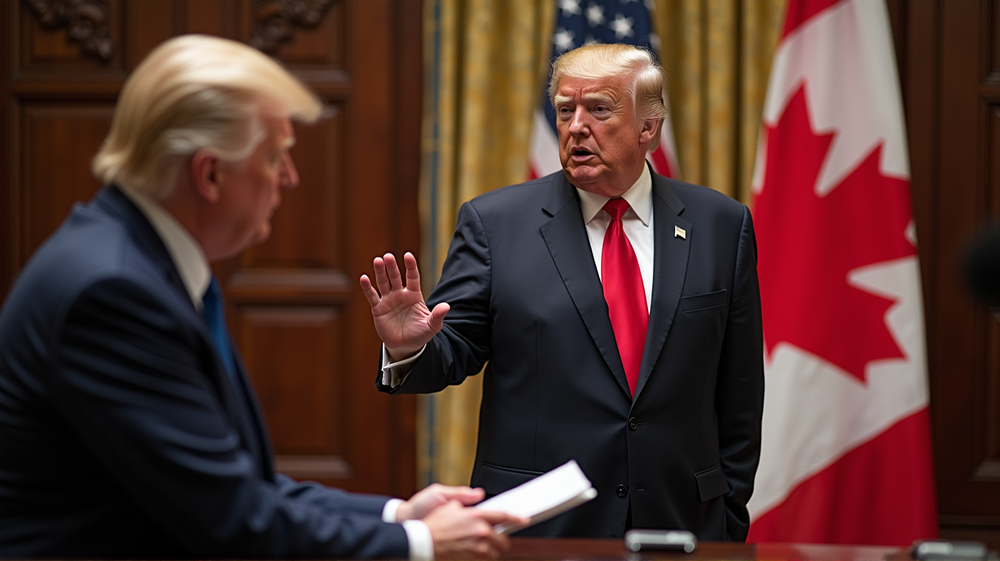In a dramatic turn of events that underscores the fragile nature of international relations, President Donald Trump has announced the termination of trade talks with Canada. The catalyst? A television advertisement that aired in the Canadian province of Ontario, invoking the legacy of former President Ronald Reagan.
A Pulse-Quickening Advertisement
The advertisement in question, which aired just weeks ago, featured audio snippets from a 1987 address by Ronald Reagan. In that speech, Reagan talked about the potential fallout of high tariffs. However, according to the Ronald Reagan Presidential Foundation & Institute, the Canadian campaign was guilty of selective editing, twisting Reagan’s message.
As stated in ABC News - Breaking News, Latest News and Videos, this misrepresentation sparked a vehement response from President Trump, who took to his Truth Social network, branding the ad as a flagrant attempt to manipulate U.S. judicial decisions.
Ontario’s Quick Retraction
Following Trump’s declaration to end negotiations, Ontario Premier Doug Ford responded swiftly. In a bid to quell tensions and revive talks, Ford announced a pause in Ontario’s ad campaign, coinciding with the Major League Baseball World Series weekend.
“Ontarians elected us to safeguard our community and economy,” Ford declared, urging a return to cordial U.S.-Canada partnership. He stressed that the misguided campaign intentions were not reflective of Ontario’s true spirit.
The Larger Saga
The drama does not exist in a vacuum. This standoff previews a significant Supreme Court case set to determine if Trump’s imposition of global reciprocal tariffs overstepped emergency powers. Tens of billions in tariffs hang in balance, a situation compounded by July’s 35% tariff on Canadian imports.
The mutual commitments between Trump and Canadian Prime Minister Mark Carney seemed hopeful until this unforeseen ad-prompted trade rift.
The Fate of Bilateral Trade
Whether trade talks can rebound remains uncertain. The Canadian attempt to navigate these communications blunders illustrates broader questions about international diplomacy in the age of media manipulation and the enduring impact of historical rhetoric. As leaders exchange declarations and allegations, the world watches, hopeful for a restoration of amicable negotiations.
The political theater around the U.S.-Canada trade talks encapsulates the volatile intersection of media, diplomacy, and economic policy. How countries navigate these turbulent seas may well define modern trade alliances.













